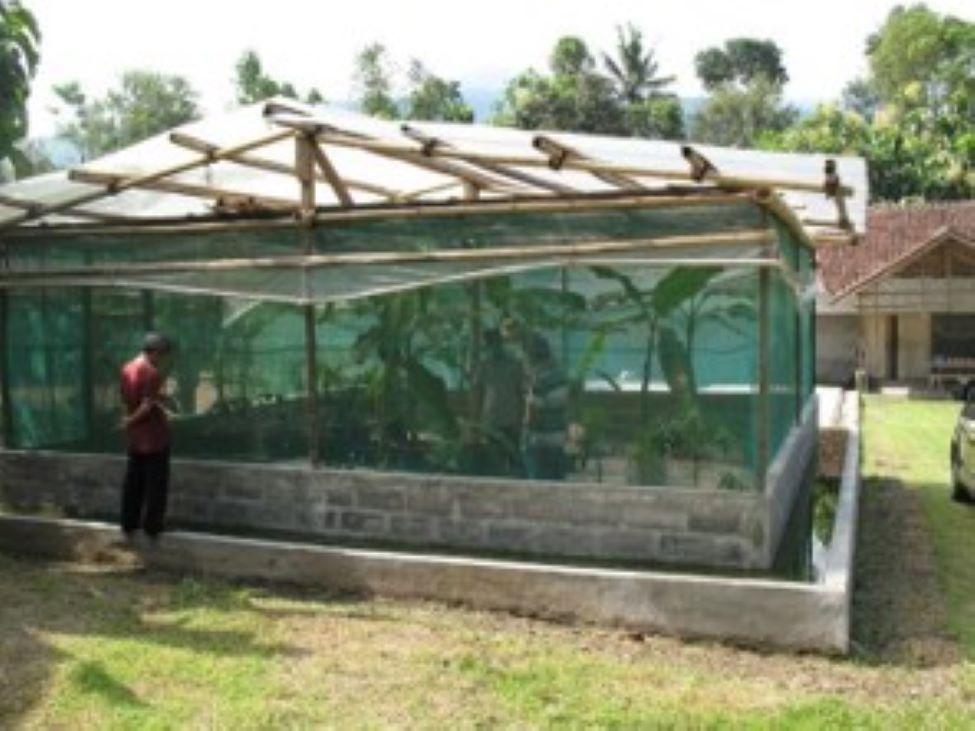Sustainable Waste-based Insect Farming Technologies (SWIFT)

Background
With increasing food uncertainty and population growth, resilience and strengthening of local food production for local markets is critical. Furthermore, in sub-Saharan Africa, poultry, pig and fish are the fastest growing agricultural sectors, but are unable to realize their full potential due to the high cost of feed. In rural and urban areas, the challenges for Africa’s female and younger population for employment are particularly complex, constrained by land access, natural resources, finance, technology, information and education, all creating difficulties to acquire a livelihood and contribute to the local economy. In waste management, the need for improved practices is highly relevant. Waste is a challenge rather than a resource. Dumping and open burning of waste results in greenhouse gas emissions, health and environmental threats.
Waste-based BSF insect farming helps alleviate all these issues focussing on three sustainable development challenges: food security, job and livelihood creation, and environmental protection. Waste-based BSF insect farming can be developed on-farm as a side activity or as a small and medium business and provides a new livelihood opportunity for women and youth farmers or entrepreneurs.
Aims
The overall objective of this project is to enable and foster adoption of waste-based Black Soldier Fly (BSF) insect farming technologies for smallholder farmers and small and medium enterprises with a specific focus on Uganda and Malawi.
The project follows four thematic research workpackages. WP1 is on the waste substrates to strengthen the knowledge base of development partners and practitioners regarding the waste challenge and suitability for insect farming. Research will assess waste practices, quantities and qualities in selected locations (Jinja, Uganda; Mzuzu, Malawi), using field sampling, observation, interviews, surveys and multi-criteria analysis for evaluating waste suitability.
WP2 focuses on co-development of insect farming design, equipment and operations to establish adaptive blueprints and implement pilots in each country, to serve as demonstration and training sites.
WP3 focuses on insect products and markets with special attention to market entry as well as financial feasibility of farming operations. This involves market surveys, perception assessment, and extension work with farmers, as well as to cost-revenue modelling based on primary data from the pilot units with the objective to develop and enable business models, financial viability and assess socio-economic impacts of different organizational setups.
WP4 will focus on how community and institutions affect insect farming, comprising studies of institutional, legislative and economic enabling conditions. This includes evaluating the potential of carbon trading as financing mechanism, as well as assessment of legislative and institutional barriers and opportunities, using research methods such as interviews, focus group discussions and multi-stakeholder dialogues.
All workpackages rely on participatory methods and close interaction with a wide range of stakeholders in all phases of research. In this regard, innovation platforms and a science-policy-practice dialogue will be established involving all stakeholder groups.
Relevance
Waste-based BSF insect farming helps alleviate three sustainable development challenges: food security, job and livelihood creation, and environmental protection. Waste-based BSF insect farming is yet still in its infancy in Uganda and Malawi. It involves adult fly and egg production and the growing of BSF larvae using waste substrates. Grown larvae are harvested for use as animal feed, and residue and insect manure (frass) is an ideal soil amendment and fertilizer. As wastes are used a substrate to create value, this incentivizes recycling and reduces environmental impact.
Highlights and most important results
Through these activities, the project has the ambition to achieve the overall impact of “Biowaste recycling by BSF insect farming contributes to livelihoods, food security, resilience of smallholder farmers, and mitigates greenhouse gas emissions”.
